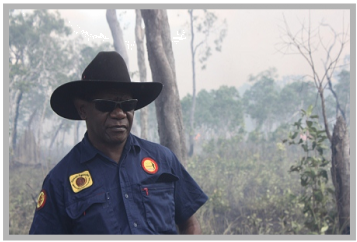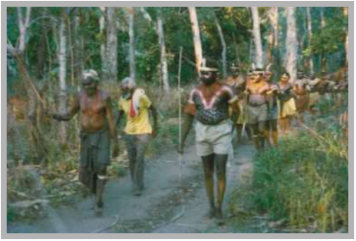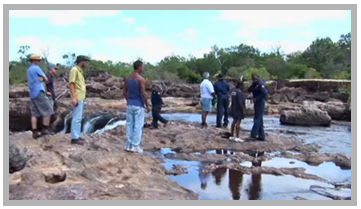


HOME | ABOUT US | HOMELANDS DEVELOPMENT | NRM | CULTURAL HERITAGE | PROJECTS | CAMPGROUNDS | MEDIA | LINKS






HOME | ABOUT US | HOMELANDS DEVELOPMENT | NRM | CULTURAL HERITAGE | PROJECTS | CAMPGROUNDS | MEDIA | LINKS




In July 2002 the descendants of a focal Kuuku I'yu Northern Kaanju ancestor, being members of the Claudie/Moreton/Nelson families and living at Chuulangun on the upper Wenlock River, established Chuulangun Aboriginal Corporation under the Commonwealth Aboriginal Councils and Associations Act 1976. Our corporation has since transferred to registration under the Commonwealth Corporations (Aboriginal and Torres Strait Islander) Act 2006 (CATSI Act), administered by the Registrar of Indigenous Corporations.
Our Objectives
Background to Our Organisation
Governance and Administration
Responsibilities and Tasks Ahead
Our Objectives
The objectives of our organisation are:
Background to Our Organisation
In March 2002 the Chuulangun community prepared a report - Chuulangun, Pa'un and Malandaji - Kaanju Homelands Development 2002 and Beyond - that built on an earlier paper we prepared, Wenlock Outstation Development Plan 1999/2000. Both documents outline our vision for the reestablishment of Northern Kaanju communities on our homelands on the upper Wenlock and Pascoe Rivers, Cape York Peninsula. They also highlight the problems we have experienced in moving back to homelands and suggest possible solutions.
The reports stressed the serious inadequacies within regional and Aboriginal organisations and government to meet the needs and aspirations of Aboriginal people living on homelands. In the case of the former, a number of regional Indigenous bodies, community councils and land trusts have been formed in Cape York over the last 25 or so years. Many of these organisations are comprised of several families and clan groups from differing tribal groupings and are based on one group's traditional lands. This situation often creates tensions within the body and communities involved, with particular individuals and families directing proceedings and the allocation of available resources.
Chuulangun Aboriginal Corporation stands out amongst other Indigenous bodies on the Cape and elsewhere because our organisation was formed from the grassroots level on our homelands and with the family-based group or clan as the basis for membership and governance. Membership is open only to those people who live normally and permanently at Chuulangun and/or associated Northern Kaanju clan estates on the Wenlock and Pascoe Rivers.
Governance and Administration
Chuulangun Aboriginal Corporation is managed by an annually elected executive and directors who meet to consider planning issues, project proposals, and funding for infrastructure development and service delivery for the community at Chuulangun and management of the wider Kuuku I'yu Northern Kaanju Ngaachi. Our organisation is localised and is an extension of ancient Kaanju governance structures.
Information and key documents for our organisation including annual financial reports can be viewed and downloaded from the ORIC website.
Responsibilities and Tasks Ahead
The main responsibility of Chuulangun Aboriginal Corporation is to represent the interests of Kuuku I'yu Northern Kaanju people associated with the upper Wenlock and Pascoe Rivers, on land and resource management issues and to help facilitate sustainable homelands and economic development.
In doing so we have developed mutually beneficial relationships with neighbouring leaseholders on Northern Kaanju homelands and are developing collaborative arrangements with a number of individuals, academic and scientific organisations and consultancies. Since 2002 we have had a range of funding successes from State and Commonwealth government programs and from philanthropic organisations. Our funded projects can be viewed on the Projects page.
Our aspirations for land and resources management, homelands and economic development are outlined in detail in our management plans.
Our Objectives
Background to Our Organisation
Governance and Administration
Responsibilities and Tasks Ahead
Our Objectives
The objectives of our organisation are:
- To set up and operate homelands-based community businesses that incorporate sustainable land management principles
- To develop homelands-based projects, education and training that will build the selfesteem of our members and our people
- To promote improvements in the health, and the economic and social well-being of our members as well as that of the wider Aboriginal community
- To encourage our own people as well as the wider Aboriginal community to return to their homelands and become more self-determining and self-reliant
- To promote the principle that one must live on their particular homeland in order to have a say in its management
- To work in collaboration with neighbouring land managers to support sustainable land management, biodiversity protection and sustainable livelihoods on country
- To manage the Kuuku I'yu Northern Kaanju Ngaachi sustainably for the protection of biocultural diversity
- To have greater access and control over the funds and resources available to help meet the above-mentioned objectives.
Background to Our Organisation
In March 2002 the Chuulangun community prepared a report - Chuulangun, Pa'un and Malandaji - Kaanju Homelands Development 2002 and Beyond - that built on an earlier paper we prepared, Wenlock Outstation Development Plan 1999/2000. Both documents outline our vision for the reestablishment of Northern Kaanju communities on our homelands on the upper Wenlock and Pascoe Rivers, Cape York Peninsula. They also highlight the problems we have experienced in moving back to homelands and suggest possible solutions.
The reports stressed the serious inadequacies within regional and Aboriginal organisations and government to meet the needs and aspirations of Aboriginal people living on homelands. In the case of the former, a number of regional Indigenous bodies, community councils and land trusts have been formed in Cape York over the last 25 or so years. Many of these organisations are comprised of several families and clan groups from differing tribal groupings and are based on one group's traditional lands. This situation often creates tensions within the body and communities involved, with particular individuals and families directing proceedings and the allocation of available resources.
Chuulangun Aboriginal Corporation stands out amongst other Indigenous bodies on the Cape and elsewhere because our organisation was formed from the grassroots level on our homelands and with the family-based group or clan as the basis for membership and governance. Membership is open only to those people who live normally and permanently at Chuulangun and/or associated Northern Kaanju clan estates on the Wenlock and Pascoe Rivers.
Governance and Administration
Chuulangun Aboriginal Corporation is managed by an annually elected executive and directors who meet to consider planning issues, project proposals, and funding for infrastructure development and service delivery for the community at Chuulangun and management of the wider Kuuku I'yu Northern Kaanju Ngaachi. Our organisation is localised and is an extension of ancient Kaanju governance structures.
Information and key documents for our organisation including annual financial reports can be viewed and downloaded from the ORIC website.
Responsibilities and Tasks Ahead
The main responsibility of Chuulangun Aboriginal Corporation is to represent the interests of Kuuku I'yu Northern Kaanju people associated with the upper Wenlock and Pascoe Rivers, on land and resource management issues and to help facilitate sustainable homelands and economic development.
In doing so we have developed mutually beneficial relationships with neighbouring leaseholders on Northern Kaanju homelands and are developing collaborative arrangements with a number of individuals, academic and scientific organisations and consultancies. Since 2002 we have had a range of funding successes from State and Commonwealth government programs and from philanthropic organisations. Our funded projects can be viewed on the Projects page.
Our aspirations for land and resources management, homelands and economic development are outlined in detail in our management plans.


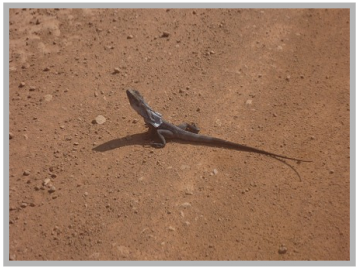

"...there are serious inadequacies within Aboriginal organisations and government bodies to meet the needs and aspirations of Aboriginal people living on their homelands".




"...(homelands) policy (must) be formulated by Aboriginal people living on their homelands for only those people on the ground (level) know how they want to live and the best way to manage country."

HOME | ABOUT US | HOMELANDS DEVELOPMENT | NRM | CULTURAL HERITAGE | PROJECTS | CAMPGROUNDS | MEDIA | LINKS
HOME | ABOUT US | HOMELANDS DEVELOPMENT | NRM | CULTURAL HERITAGE | PROJECTS | CAMPGROUNDS | MEDIA | LINKS

Copyright 2003-15 by Chuulangun Aboriginal Corporation | ABN 74277585078 | Contact Us | Credits | Disclaimer | This page last updated 16/06/2015



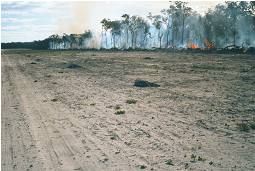


Copyright 2003 by Chuulangun Aboriginal Corporation
C/- Post Office COEN Queensland 4871 Australia
Email: chuula@kaanjungaachi.com.au
Credits / Disclaimer
C/- Post Office COEN Queensland 4871 Australia
Email: chuula@kaanjungaachi.com.au
Credits / Disclaimer


